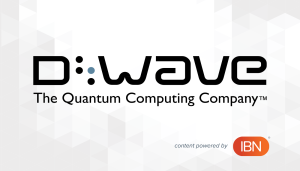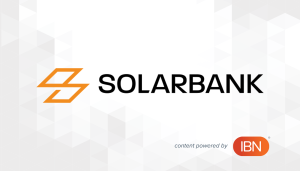
✎ Contributed by Ty Griffin
Scientists have discovered what could be the strongest evidence yet of life beyond our Solar System. A new study has identified potential biosignatures in the atmosphere of an exoplanet known as K2-18b, which lies 124 light-years away. This discovery, made using data from the James Webb Space Telescope (JWST), reveals that the atmosphere of this planet contains a variety of compounds, including dimethyl sulfide and dimethyl disulfide, which are both linked to biological processes on Earth. While this evidence alone is not definitive proof of life, it is a groundbreaking step toward understanding the possibilities of extraterrestrial life in other parts of the universe.
Performance of Space Exploration Companies
- Virgin Galactic Holdings Inc. (NYSE: SPCE): Trading at $2.48, down $0.05 (1.97%) today.
- Lockheed Martin Corp. (NYSE: LMT): Trading at $464.42, down $12.66 (2.65%) today.
- Northrop Grumman Corp. (NYSE: NOC): Trading at $540.05, up $2.54 (0.47%) today.
- Boeing Co. (NYSE: BA): Trading at $159.65, up $3.18 (2.03%) today.
Industry Impact
This revelation about K2-18b marks a monumental moment for astrobiology, particularly as it reinforces the idea that other planets may harbor conditions conducive to life. The discovery was made possible by the remarkable capabilities of the James Webb Space Telescope, which has revolutionized our ability to study exoplanets in detail. The telescope’s observations allow scientists to probe the atmospheres of distant worlds for gases and compounds that could be signs of life.
The discovery of dimethyl sulfide (DMS) and dimethyl disulfide, which on Earth are produced by biological activity, suggests that life may be more common in the universe than previously thought. While these compounds are not exclusive to life, their presence is a significant indicator that further investigation is warranted.
This breakthrough also has implications for the space industry, particularly for companies like Virgin Galactic, Lockheed Martin, Northrop Grumman, and Boeing. These companies are advancing space exploration and technology, and they stand to benefit from increased interest in space missions aimed at discovering more about the universe and the potential for life on other planets.
Virgin Galactic is working on commercial space tourism, offering suborbital flights to the public. While its focus is currently on short-term flights, discoveries like K2-18b could spark future investments in more complex space missions and human space exploration beyond Earth’s orbit.
Meanwhile, aerospace giants like Lockheed Martin, Northrop Grumman, and Boeing are playing major roles in governmental and commercial space programs. These companies are involved in NASA’s Artemis program to return humans to the Moon and support future Mars exploration missions. As humanity continues to reach for the stars, the technologies developed by these companies will be essential in the effort to better understand exoplanets, and perhaps even send missions to explore them.
Conclusion
The detection of potential biosignatures on K2-18b signals an exciting future for space exploration. While the evidence is still being analyzed, the discovery represents one of the most compelling leads in the search for life beyond Earth. As technology and research advance, we may soon be able to find even more promising exoplanets. For companies like Virgin Galactic, Lockheed Martin, Northrop Grumman, and Boeing, this discovery underscores the potential for future missions aimed at understanding our universe and exploring new worlds that could harbor life. As humanity looks to the stars, the boundaries of space exploration and the search for extraterrestrial life continue to expand rapidly.
NOTE TO INVESTORS: IBN is a multifaceted financial news, content creation and publishing company utilized by both public and private companies to optimize investor awareness and recognition. For more information, please visit https://www.InvestorBrandNetwork.com
Please see full terms of use and disclaimers on the InvestorBrandNetwork website applicable to all content provided by IBN, wherever published or re-published: http://IBN.fm/Disclaimer
Corporate Communications
IBN
Austin, Texas
www.InvestorBrandNetwork.com
512.354.7000 Office
Editor@InvestorBrandNetwork.com




